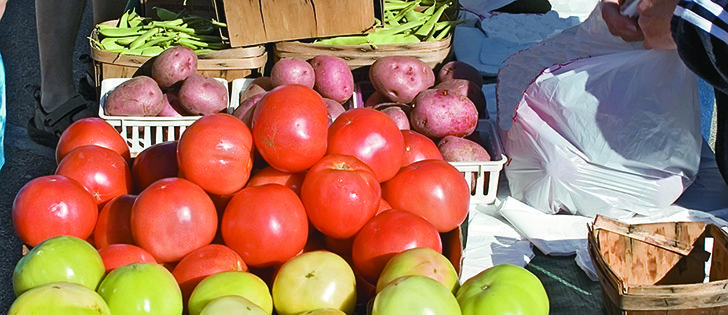Consumers seem to assume that locally produced food, food produced by small farmers and organic products are inherently safe, say food safety experts.
That’s a problem, they add, because no one should be assuming that local, small-scale and organic food is any safer than mainstream food. As well, fewer safety controls are sometimes placed on that kind of food than what is imposed on food sold in the grocery stores.
By knowing the people who produce organic or local products, consumers feel confident in its safety, but it may be misguided, said Rick Holley, a University of Manitoba food safety expert.
Read Also

Know what costs are involved in keeping crops in the bin
When you’re looking at full bins and rising calf prices, the human reflex is to hold on and hope for more. That’s not a plan. It’s a bet. Storage has a price tag.
“Those things just do not offer a level of protection that is better than the current systems that we have in place for the manufacturing and distribution of food within the province or interprovincial.”
A debate recently erupted over whether Manitoba Agriculture over-reacted when its inspectors seized and destroyed a producer’s farm-made prosciutto and other raw, cured meat.
Some have argued that existing food manufacturing guidelines are designed for major food processors and do not allow small-scale farmers and processors to make food locally.
However, Holley and the man who was Manitoba Agriculture’s food safety manager at the time of the prosciutto seizure, say nothing can allow food safety standards to be compromised to help small-scale producers.
“Especially with things like ready-to-eat meat. This stuff doesn’t get cooked,” said Glen Duizer, the acting chief veterinary officer at the time of the seizure.
“As one of our inspectors said (to me), the kill stage of any pathogen in ready-to-eat meat is inside your stomach. There is no other cooking or anything else that happens to it.”
Duizer said he worries that the public has a false confidence in the inherent safety of food that is made locally, organically or sold outside the usual commercial channels.
“There is an impression out there that because they’re small, local, they raise their pigs outside or their flocks outside … that their product is safe. And local does not equal safe,” said Duizer. “It’s not synonymous.”
He said the public has become less worried about food poisoning even though the food threats are more lethal than in the past.
“The pathogens, the food-borne pathogens that we have today, especially the salmonellas and E. colis, are not the same ones we had 60, 70, 80, 90 years ago. It’s a different crop. A different group. And they are not standing stagnant, waiting for us to catch up,” said Duizer.
“They will find a way to get into food, to get into people and cause significant disease. We have to make sure that the standards are right to make sure that the food is safe.”
Holley said he recently asked students in a food safety course he teaches how safe they thought food was at farmers markets.
Some assumed the products were safer than at grocery stores because they were local and small scale.
“That’s really unfortunate,” said Holley. “I don’t think for a moment that foods that are sold at farmers markets are (necessarily) more risky, but there’s greater opportunity for that to happen if the guidelines are not there.”
















